
OR
Police accused of leaking sensitive information amid ongoing criminal investigations
Published On: September 17, 2023 02:45 PM NPT By: Arun Bam

KATHMANDU, Sept 17: Leaking information obtained until the completion of a criminal investigation is considered unprofessional conduct of the investigating officer. However, in the investigation of the recent big and well-known crime incidents, the investigation officers of Nepal Police have leaked information one after another. Some facts and information obtained during the police investigation including leaders' speeches, especially in the fake Bhutanese refugee scam case and the gold smuggling case, are highlighted through social media. As the investigation was not completed, such information reached the doorsteps of political power centers.
Some people became socially guilty when information was leaked in this way without investigation. They were, and are, publicly criticized. But research reports are different. After the report came out different from the leaked information during the investigation, doubts have also arisen about the role of the police. In both the fake Bhutanese refugee scam and the gold smuggling cases, the investigation report submitted by the police to the public prosecutor's office is being criticized with the accusation of trying to exonerate the ‘VIPs’ accused. The police are defending themselves by saying that the investigation in both cases is not yet complete.
In the process of investigating the fake Bhutanese refugee scam case, the police announced that an arrest warrant has been issued against former Deputy Prime Minister Top Bahadur Rayamajhi and his son. Rayamajhi was at a public event in home district Arghakhanchi along with the Speaker of the House of Representatives, Devraj Ghimire, when the notice of the arrest warrant was released, from where he responded to help in the investigation with some media persons.
On the same day that the arrest warrant was issued, Rayamajhi, who came down to Butwal from Arghakhanchi along with Speaker Ghimire, absconded from there on the second day. His son Sandeep was arrested. Top Bahadur Rayamajhi was arrested 11 days later from Kathmandu. The delay in his arrest affected the investigation for a few days. This would not have happened if the police had not leaked the arrest warrant against Rayamajhi father and son duo.
The police leaked information that an arrest warrant has been issued against former home minister Ram Bahadur Thapa's security advisor Indrajit Rai and Thapa's son Prateek during the investigation of the fake Bhutanese refugee scam case.
Prateek Thapa and Indrajit Rai's son Niraj Rai are still absconding due to leaking information without arresting them. The police officer himself stated that the investigation was affected when both of them absconded.
“The case of sending Nepalis abroad as fake Bhutanese refugees is an organized crime, which is multi-layered. While investigating various levels of the crime, it was found that Prateek Thapa and Niraj Rai could be involved. Had they been arrested, another level of information related to crime could have been revealed,” says a police officer assigned to the investigation, “Evidence with the individual connects the layers of the investigation. Therefore, when they absconded, it can be considered that the investigation was affected or incomplete.”
While the investigation in the refugee scam case was ongoing, the police recorded a 'screenshot' of the conversation on WhatsApp between the accused Keshav Dulal and the then Secretary of the Government of Nepal, Tek Narayan Pandey, the audio tape of the accused giving money to Nepali Congress leaders Arzu Rana Deuba and Manju Khand, former Prime Minister KP Sharma Oli's personal secretary Rajesh Bajracharya. Information was also leaked that the wife of former Home Minister Ram Bahadur Thapa had given money to some former secretaries. After such information was leaked, there was a big wave in the political circle.
Even when the investigation into the gold smuggling case was going on, the information was also leaked. In particular, there were various reports about the relationship of the arrested persons with the leaders of the CPN (Maoist Center), Dawa Tsering, who is considered to be a ringleader of smuggling, and the then Director General of the Department of Immigration Jhalak Ram Adhikari. This has also raised questions about the professional integrity of the police.
“This time, I am even more surprised to see that the information received during the investigation has been leaked,” says Hemant Malla, former Deputy Inspector General (DIG) of Nepal Police, “Leaking information like this is an unprofessional job of the police which really affects the investigation.”
Spokesperson of Nepal Police, DIG Kuber Kadayat, is not ready to accept that the police have leaked information to affect the investigation.
“Police should not leak information to affect the investigation. It has not even been leaked,” he said, “All investigating officers are instructed to give official views only through the spokesperson. Action will be taken if someone is irresponsible and leaks information.”
Information being leaked from powerhouse to individual level
While the investigation into the fake Bhutanese refugee scam case was ongoing, UML Chairman KP Sharma Oli had met Prime Minister Pushpa Kamal Dahal and claimed that he had received information against some political persons involved in this illegal business. Oli alleged that the government tried to trap the UML leaders by protecting the people he had received information about from others earlier. According to sources, the information was conveyed to Oli by a police officer while the investigation was going on. While the investigation into the refugee case was going on, most of the information about it was highlighted to the media from insider circles. The same happened in the case of gold smuggling.
The screenshot of the Wechat conversation between Dawa Tsering, who was detained during the investigation in the gold smuggling case, and the then Director General of the Department of Immigration, came into the media after it reached the Chairman of the Rastriya Swatantra Party (RSP), Rabi Lamichhane. Lamichhane claimed in the House of Representatives meeting that he had evidence related to the gold smuggling case.
According to the sources, when the investigation is going on, the police officers themselves reach the political power centers and leak information. The investigating officers forward the information found during the investigation to all party leaders, whether unconfirmed or after confirmation. Experts say that after receiving the information, the political parties mount pressure to prepare the investigation report according to them. “After the information obtained in the investigation is handed over to the political party leaders, they naturally press to protect their people. This kind of pressure affects the investigation,” says Rabi Thapa, former Additional Inspector General of Police (AIG) of Nepal Police, “When the other party gives the same pressure after receiving the information, it may create political pressure.”
Why is information leaked?
According to former DIG Hemant Malla, the main reason why the police failed to investigate and rather leaked important information is that the performance evaluation in the organization is not transparent and effective. “In order to be promoted in the police force or to be transferred to a better place, it is necessary to be close to the center of power,” he said, “On the other hand, in big cases, power centers are also looking for information, from which they can decide their strategy. In such a situation, irresponsible officers leak the information. They think that they will be praised for providing the information.” Malla believes that the celebrity syndrome which has increased in the police authorities recently is also responsible for leaking information. He said, “It is believed that the police officers should also get credit for their work, and they should be promoted for that. This also seems to be a major reason behind leaking important information.” Furthermore, Malla is of the opinion that even in the cases where the selfishness is close to hiding their weakness from the media, information that affects the investigation is leaked.
Former AIG Bigyan Raj Sharma believes that the police are not the only one to be blamed for the information being leaked during the investigation and the investigation being affected. “Leaking information to affect the investigation is a crime against investigation. This is not a forgivable matter,” he says, “But there is a bit of prejudice in it rather than the fault of the police alone. The public prosecutor who joins the investigation from the beginning, the information is leaked even from the court.” He says that any investigating officer can leak information even if there is a situation of mislead in the investigation due to someone's pressure or to take credit for the facts that are found during the investigation.
You May Like This

Confusion in Nepal Police in lack of Federal Police Act
KATHMANDU, July 19: Although Nepal Police was among the first few state organizations to be federated in line with the new... Read More...

Nepal Police promotes 83 police personnel (with list)
KATHMANDU, June 3: The promotion committee of Nepal Police has recommended 83 staffers as Superintendent and Deputy Superintendent of Police. ... Read More...
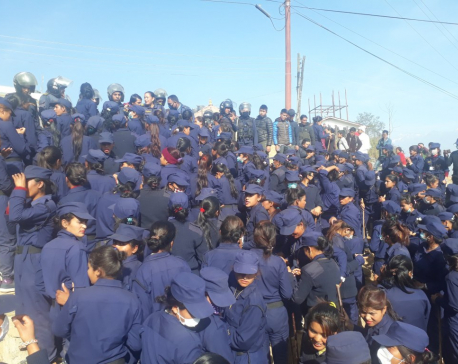
Temporary police protest causes negotiation at Police Office
DOLAKHA, Dec 19: Upon knowing that the District Police Office (DPO), Dolakha had charged inflated price for each meal, temporary... Read More...

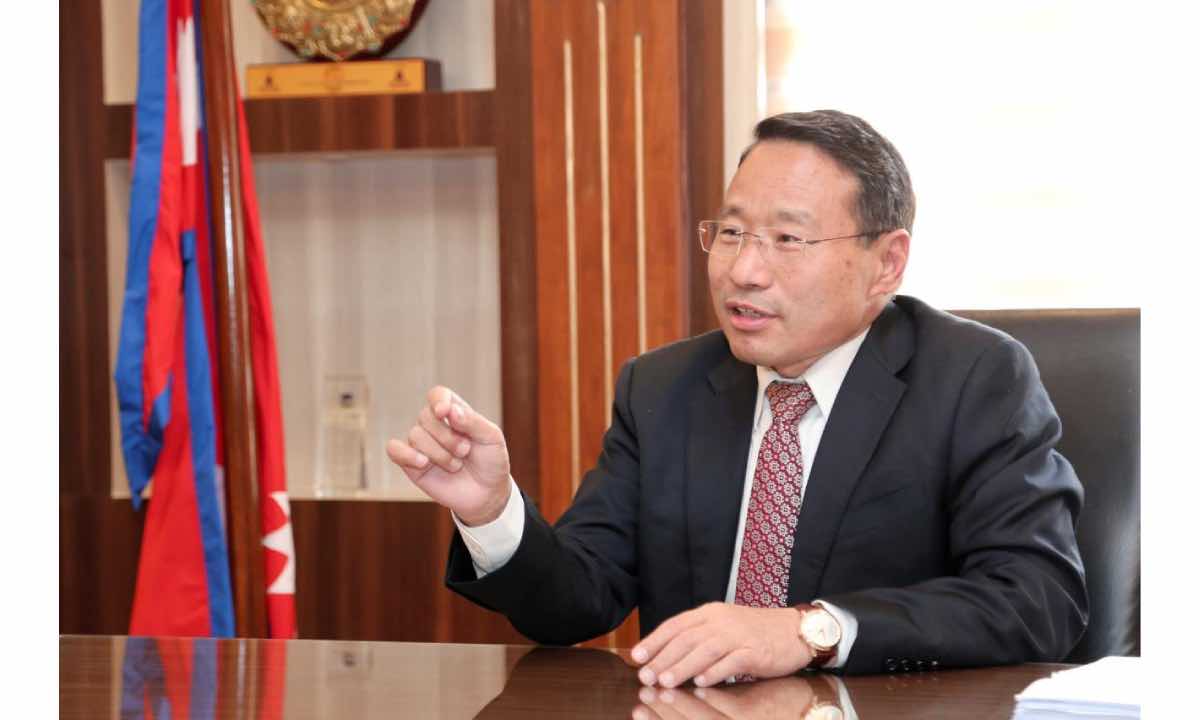

Just In
- 3rd Investment Summit: Govt seeking letters of intent for 20 projects
- Gold price increases by Rs 400 per tola
- ‘We have established a long-term vision and policy stability in key investment sectors’
- FNCCI President Dhakal invites investors to explore Nepal's promising sectors
- The South Korean Development Formula
- T-20 series: Nepal playing second match against West Indies ‘A’ today
- Investing in Nepal: Challenges and Opportunities
- ‘Nepal should focus on ease and speed of doing business’







-1200x560-wm_20240427144118.jpg)




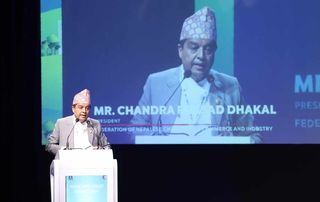
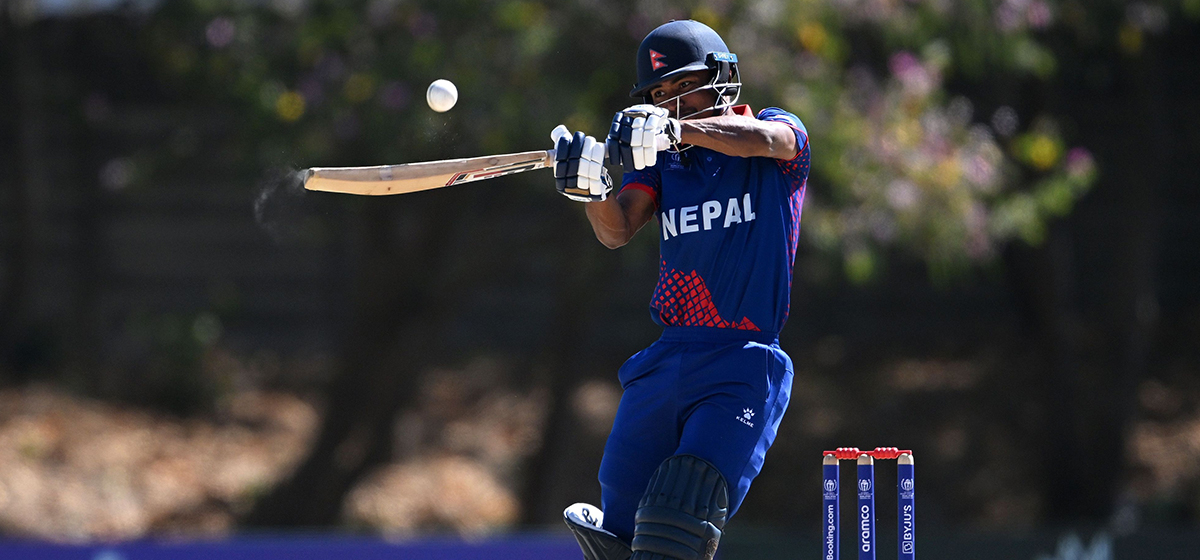
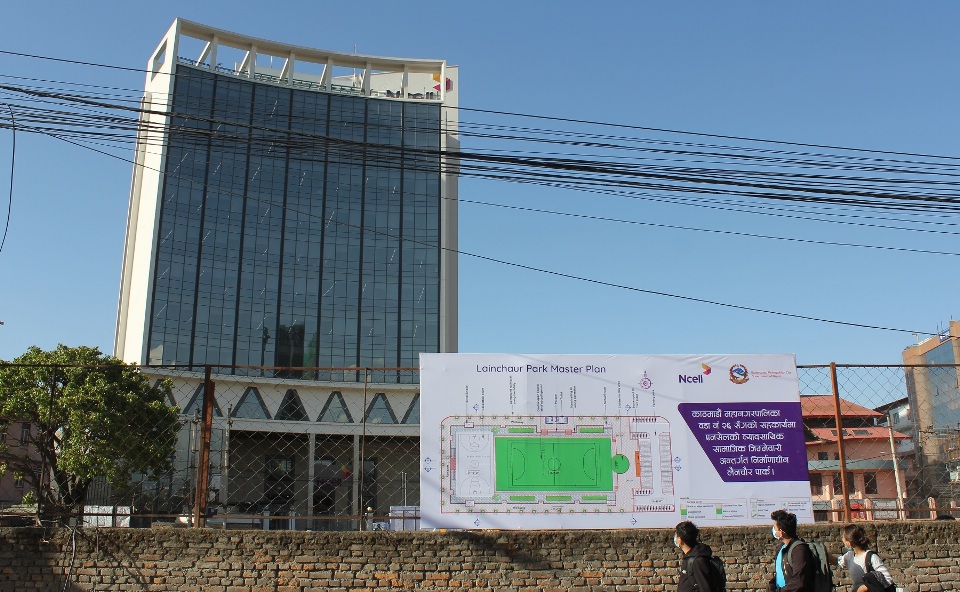

Leave A Comment